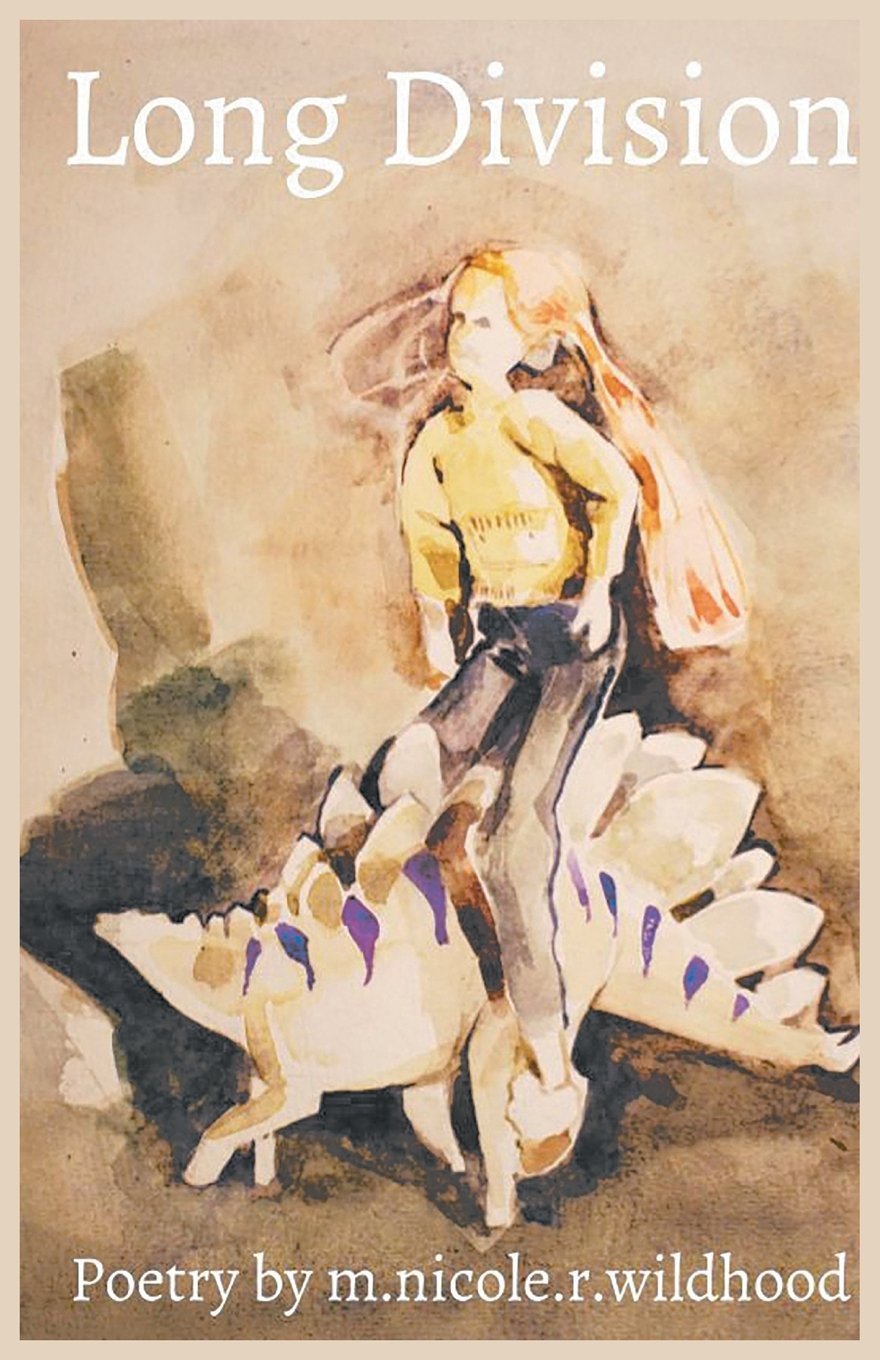Long Division
When you think about it, your siblings can be the people you know the longest on this earth, longer than your parents, longer than your spouse. Long Division ponders a sisterly relationship. The title gives a hint at what to expect. It’s not about math; it is about being divided from someone.
The poet’s sister, called Jamie here, appears first chronologically at the age of two in the book’s title poem, and the sisters are close, at least physically: they share a room and a bed. The poet remembers Jamie “clinging tightly to my arm / in our screeching floral bed to get through terror-gobbled nights.” In the present she admits to missing the little bruises such clinging produced. But things between the sisters are frosty now, as signified by “she and I and the lack of we” and the way “we have made distance our habit.”
The first poem in the book Jamie appears in is the second one, which has the frosty title “My Parents’ Second Child.” The grown sisters see each other only once a year now, and “She mutters her navy disdain for me / in our family dinners and holiday games / tradition forces us to replay.”
There are definitely some clues as to how things got this way. There’s a little sibling rivalry in “Wong’s Chinese Diner, 1990” as baby Jamie dominates a family night out and her sister reflects “I remember never being told / she was not meant to replace me.” “No Dinosaurs Before Bed” describes a territorial spat over the poet’s dinosaur toys and Jamie’s doll toys, with neither coming out very well. And in “This Is Just a Drill” the two end up getting drenched by overhead sprinklers while Jamie holds the poet’s hand “maybe the last time.”
The situation isn’t totally hopeless. The two get into mischief by tunneling through the space between their adjoining closets. But the hole, meant to bring them closer together, turns into “a hole I never could fill.” There are other distancing things as well. In one, the two sisters help their father garden, but want to use seeds from separate species.
You might be wondering what Jamie thinks of all this apartness. Long Division has the grace to give her a voice.
It comes in a letter the grown-up poet doesn’t expect to receive from her sister. It is frank, starting with the fact that Jamie once wrote a poem called “Broken Sisters” and proceeding to a list of “Hostile, hurting things” between them. But then there is a softening, when Jamie reflects “We’re opposite in a lot of ways, but we grow more alike / as time passes. We both overthink things, for better or worse.”
Things seem to get a little better for the sibs after that. In “Maybe Rivers,” the poet goes home and visits a river she and Jamie played near as kids. They used to write messages to each other in tin cans they would slide to each other on a rope they tied to Aspen trees. The poet sees no trace of “our leaves-and-mud forts / that lasted through the fierce winters.” But there is a telling image at the end of the poem: “The Aspens’ arms / have grown closer together, the houses, also, and / even the canal’s sides, too.”
Long Division has a compelling through line, with sharp poetic images (returning to the room they shared, the poet finds the curtains tied together like a girl’s ponytail) that alternate with the more prosy reminiscences of the past with Jamie. The book is sometimes an uncomfortable read, which testifies to the power of m.nicole.r.wildhood, who is not afraid to show her own shortcomings. But I’m glad the tree arms have grown closer together.
Mark Fogarty’s poetry has been published in Hawaii Review, Viet Nam Generation, Journal of NJ Poets, Exit 13, Unrorean, Eclectic Literary Forum, Cokefishing in Alpha Beat Soup, Footwork, The Brownstone Poets Anthology, The TEA Newsletter, Gallery and The Rutherford Red Wheelbarrow. Mark, also a musician, is the author of three poetry collections from White Chickens Press, Myshkin’s Blues, Peninsula and Phantom Engineer. A journalist by trade, Mark grew up and lives in Rutherford, NJ. He is the managing editor of The Rutherford Red Wheelbarrow and emcees the Red Wheelbarrow Poets monthly reading series.


